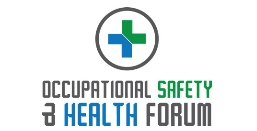RedArc is warning employers to be prepared for a huge spike in the need for bereavement support services and counselling for employees during the remainder of 2021.
Based on year-to-date figures, the nurse-led wellbeing service is predicting a 40% year-on-year increase in referrals to its bereavement support, which means that it will help the largest number of bereaved individuals in one year in its 23-year history. This follows several years of bereavement referrals being relatively stable.
Further analysis of RedArc’s data shows that in quarter one of 2021, referrals for bereavement were second only to mental health conditions (of which there are many variants), and ahead of orthopaedic issues and cancer.
In addition, RedArc believes that many of the employees who lost loved ones during the second wave of the pandemic are yet to come forward for support. Bereavement, grief and loss cause a number of symptoms and emotions that individuals usually learn to cope with but where these feelings become overwhelming and do not subside, professional support may be sought several months, or even years, after the initial loss.
Christine Husbands, managing director for RedArc, said: “Employers are likely to be seeing the after-effects of the pandemic on their employees before we do, so many will already understand the impact that losing a loved in such an untimely manner is having on staff. Unfortunately, the pandemic not only took away loved ones but also removed our ability to properly grieve: not being at a loved one’s bedside, reduced numbers at funerals, social distancing, a hug ‘ban’, and being unable to see family and friends, means more people than ever are struggling with their emotions in bereavement.”
Employers need to re-familiarise with bereavement support
RedArc is encouraging all employers to re-familiarise themselves with how they support their staff during a bereavement. Whether or not this is via existing employee benefits such as group risk insurances or funded on a case-by-case basis, it’s important to communicate this information to employees.
Husbands continued:“Following the stresses and strains of the past eighteen months, employers may find that their staff are not emotionally resilient at present and therefore coming to terms with the loss of a loved one is even more difficult. In addition, many families will have organised a relatively small funeral but may be looking to host a larger celebration-of-life service or ceremony at a later date, which means the grieving process is also extended. Therefore, employers should also be aware that their employees may grieve harder and for longer than in normal circumstances.”
Types of bereavement support
As well as providing emotional support for the employee and their immediate family, bereavement services may also offer tailored support ranging from reading materials such as books, CDs, workbooks and fact-sheets as well as signposting employees towards national and local bereavement charities and self-help groups. Practical help often includes sourcing care for family members left behind, helping the employee juggle work, childcare etc, support for parents also coping with their children’s grief, and coping strategies for dealing with milestones such as anniversaries, birthdays and Christmas.
Husbands concluded:”There is no timetable for the grieving process – everyone will have a different experience. That’s why employers need to ensure they have support in place that can be tailored to meet the individual needs of staff because no-one can predict how long it will take to adjust to living without a family member or loved one particularly when lost in difficult circumstances.”





